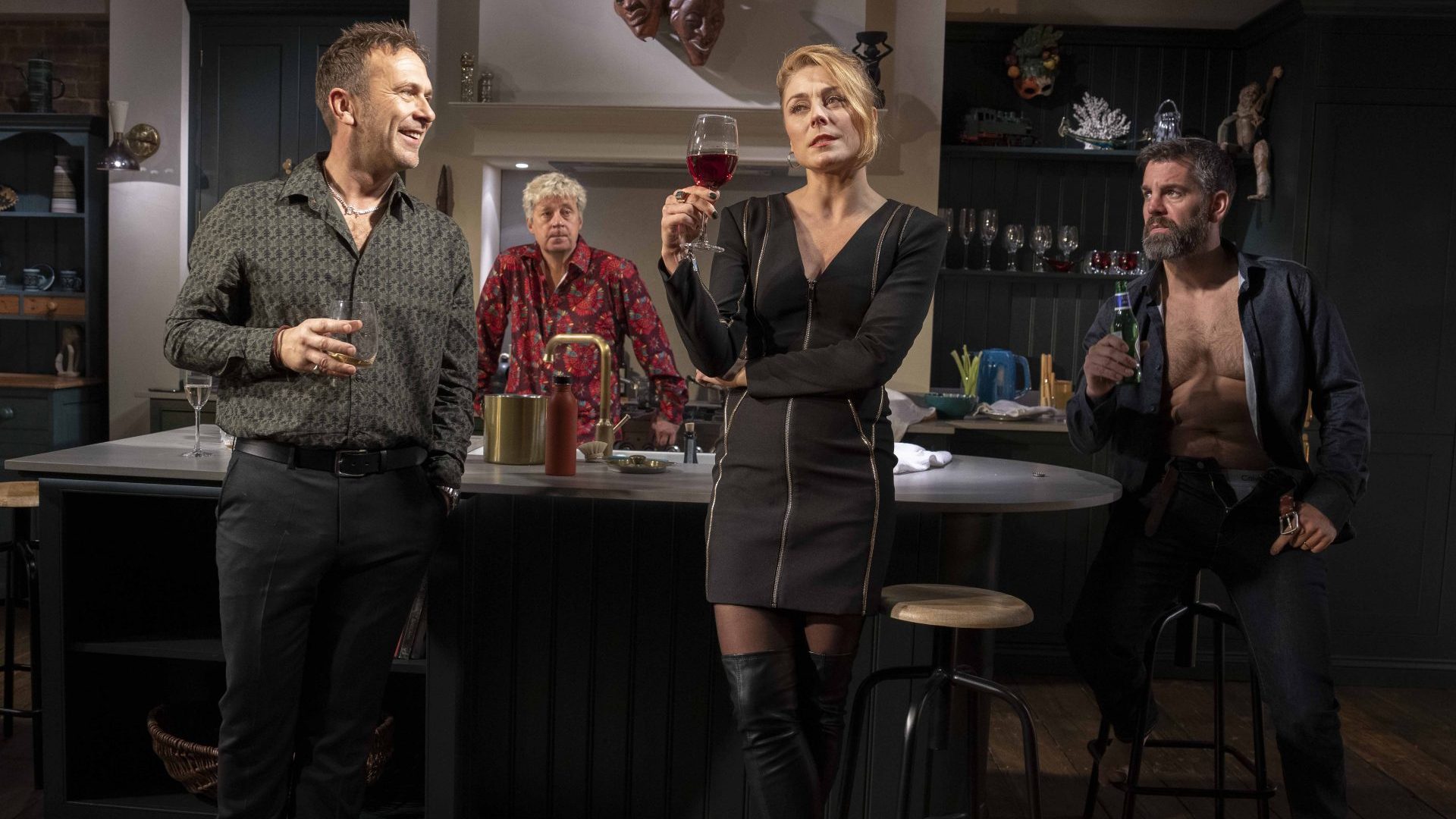The Sex Party
Menier Theatre, London, until January 7
Terry Johnson had been telling anyone who would listen that The Sex Party was his greatest work ever. This, from the man behind Hitchcock Blonde
and Mrs Henderson Presents, had inevitably set pulses racing.
I’d been hoping for a witty, Ortonesque look behind the net curtains of houses where Esther Rantzen had once noted pampas grass tends to grow in the gardens – or at the very least a knowing contemporary take on a trouserdropping Whitehall farce – but, in the event, I am sorry to say old Terry simply doesn’t rise to the occasion.
The Sex Party is neither of these things. It is a limp, boring and painfully unfunny exercise in folie de grandeur. Its writer and director has come a cropper for precisely the same reason that Sir Richard Eyre did with The Snail House: writers who also direct their own works have no one to tell them when they are getting boring.
The action is set not in the bedroom but a relatively stylish kitchen where Jason Merrells and Lisa Dwan play a couple who’ve decided to try to liven up their sex life by placing an ad on a website for some other couples to come and join them in carnal lust. A few random stereotypes show up, but there is no nudity. John Leonard’s superb sound design does an awful lot of the work
in that regard.
The most that happens is Will Barton – best known for playing Boris Johnson in various stage and television shows – runs around in his underpants which is enough, quite frankly, to put anyone off their stride.
In the second act, Terry clunkily and clumsily gets into the issue of trans rights with the arrival of Lucy, who is played by Pooya Mohseni, best-known for the television series Law & Order and her real-life trans activism. She is pitted against Timothy Hutton – older readers might remember him as a freshfaced youngster in the film Ordinary People – as an American gammon
who isn’t too keen on any ambiguous signalling ahead of a sex party and
also takes the view that “selfidentification poses a threat to the nuclear family.”
Eventually, there are even some tasteless references to the Holocaust and the play ends without a happy ending for anyone on the stage or in the audience.




